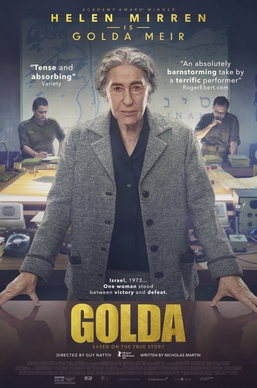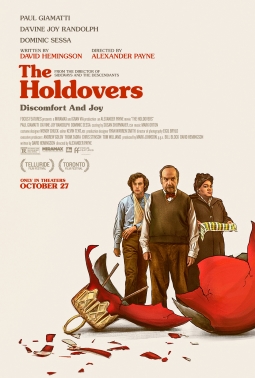MEAN GIRLS
Despite being a cultural touchstone beloved and quoted by millions, I have yet to see the original Mean Girls. As such, the 2024 film version of the Broadway musical based on the 2004 film is my first foray into the world of The Plastics. After experiencing this Mean Girls, it will almost certainly be my last foray. Hateful, insipid and pointless, Mean Girls is garbage.
Having spent her life in Kenya, homeschooled Cady Heron (Angourie Rice) now goes to a different and more dangerous jungle: the American high school. Here, she finds herself pretty much ostracized save for two outcasts. There is artistic Janice (Auli'i Cravahlo) and her FLAMBOYANTLY GAY friend Damian (Jaquel Spivey). Despite their warnings, Cady soon falls in with the ultimate rich bitch clique The Plastics, ruled by queen bee Regina George (Reneé Rapp). Regina rules over North Shore High with a firm grip, aided by her courtiers, the weak-willed Gretchen (Bebe Woods) and airhead Karen (Avantika).
As a side note, I'm sure that the queen bee being named "Regina", which is also Latin for "Queen", is a mere coincidence, but I digress.
The Plastics soon take Cady from Kenya under their vicious wing, though Janice and Damian ask Cady to report to them what is being said. Naïve and guileless, Cady does as she is told. There is trouble, however, when Cady falls for Aaron (Christopher Briney). He happens to be Regina's ex, which makes him off-limits to the other Heathers, I mean, Plastics. Cady, however, is too drawn to Aaron's beauty, down to faking being weak in math (her favorite subject) to gain his attention.
It's not long before trouble starts brewing. Regina, aware of Cady's desires and Aaron's interests, goes back for her ex, breaking Cady's heart. Janice reveals her and Regina's past connection, and a Revenge Party is planned. Things, however, don't go exactly as planned, leading to more chaos until ultimately things settle down and peace returns to North Shore High.
As it has been twenty years (!) since the original Mean Girls, I imagine that this version needed updating to make it make sense to the next generation of Queen Bees and Wannabes (the nonfiction book Mean Girls served as the basis for). I figure that social media did not play a large or any part of the original version. Perhaps therein lies one of the problems in Mean Girls. It is trying to be trendy and hip when it really is, or should be, a product of its time.
Try as I might, I could not fathom why people would be so invested in the goings-on at North Shore High. Possibly Regina's literal and metaphorical fall at the Talent Show would go viral through it being outrageously hilarious (which it wasn't here). However, in one of the film's montages, we had people do some kind of "Regina Challenge" where they try to recreate said fall, which was apparently due to her weight gain. I cannot accept that this insignificant moment at a high school talent show would inspire such a reaction, even in our TikTok Era.
A major issue for me with Mean Girls is that the film more than lives up to its title. I found every single character so unlikeable that I genuinely could not root for anyone to succeed, not even Aaron. I figure Cady is meant to be our protagonist and the one with whom we are supposed to care about. Instead, I found her in turns blank and vicious. Her wrath against Regina may have been understandable. However, her quick rise from allegedly sweet naïf to vengeful bitch never felt real. Moreover, at times it came across as Janice manipulating Cady the same way Janice insisted that Regina was manipulating Cady.
Regina was created to be the ruling monster, but oddly, she came across as almost tame in her maliciousness. She was intolerant and obnoxious, but I do not think she was as bad a monster as Janice. Yes, I thought Janice was the meanest of mean girls. For as much as Mean Girls wanted us to think of her as justified in going after Regina and being angry at Cady's transformation, Janice is the one that I felt was downright evil. The delight people took in bullying bullies just did not sit right with me.

Her musical number, I'd Rather Be Me, was not a declaration of empowerment or being true to herself. It was an entitled, obnoxious, arrogant number, one where I literally wrote "Raise Your Right Finger --Janice is bitch" (I thought the song's title was Raise Your Right Finger) as that seemed to be the takeaway from what I figure is meant as a showstopping number. I'd Rather Be Me pretty much reinforced my view that every character in Mean Girls is so awful that you want every person to get run over by a bus.
Everyone, even Kevin G. (Mahi Alam), the Mathlete Captain who apparently is under the delusion that he is the Indian Eminem. One can have some fun with the Mathlete Captain being so desperate to be cool. Here though, it came across as obnoxious instead of endearing. His ripping his shirt open after winning the state championship made him look genuinely insane. Why he went to the Spring Fling dance wearing just a letterman jacket to cover up his bare chest will always be a puzzle to me. I figure it was to signal that they had come straight from the competition to the dance (because audiences apparently are too stupid to not realize both events were on the same day). However, someone would have told him, "Kevin, put on a shirt and dress well for a formal dance".
I think the closest part where there was an attempt at wit is when, during the apology sessions, one person apologized to another for telling her that they were off during Revenge Party. Referencing a musical number in the film itself at this point is not clever. It is idiotic.

A good musical will live or die by its songbook. Mean Girls, which is one of many Broadway musical adaptations of popular films currently in vogue*, does not have a musical moment that stands out. I'll walk that back a bit. Out of the songs in Mean Girls, the one that I thought was the best was Stupid with Love. There is something slightly amusing in hearing one is "smart with math, but stupid with love". The rest of the songbook goes from the merely dumb to the downright hideous. Sexy, the song at the Halloween party (and where I was close to walking out of the theater) I think tries yet again to be contemporary by including social media as part of the sequence. Still, I wonder why anyone would care about a high school Halloween party where everyone is dressed as sexy, down to a sexy Eleanor Roosevelt.
Sexy and Someone Gets Hurt, the song Regina sings at the party when she recaptures the weak-willed Aaron, have an issue that plagued the production. Again and again, I thought how the musical numbers would work on a stage, but never translated onto film. Even something like Stupid with Love, with the backup vocalists playing along, would fit perfectly in a stage production than on screen. A stage allows for greater unreality, where people breaking out into song is plausible. A good musical film can do likewise, if the songs are good. I am hard-pressed, however, to think anyone walked out of either stage or screen Mean Girls singing Apex Predator or World Burn.
Even weak songs would not sink something if we got something original with the material. Instead, from what I understand, we got basically a remake with music. I do not understand the interest in telling a story people already know and just inserting songs into it. It is one thing when you do something original to an established play or film (such as when Lerner & Lowe took Pygmalion to craft My Fair Lady). To just make the same thing with a few song-and-dance bits is a puzzle to me.
Curiously enough, Mean Girls: The Musical lost the Best Musical Tony to The Band's Visit, which is yet another musical adaptation of a (slightly-less popular) film, one of its twelve losses out of twelve nominations. Even more curiously, its fellow Best Musical nominees that year were Frozen (another musical adaptation of a film) and SpongeBob SquarePants (a musical adaptation of a television show that has had feature films). Where are Rodgers & Hammerstein when you need them?
I cannot be too hard on the actors given that they had poor direction from Samantha Jayne and Arturo Perez, Jr. (their generation's Robert Wise and Jerome Robbins?). Probably the worst is Spivey, who served no purpose except to be FLAMBOYANTLY GAY and throw sass whenever sass was needed. I would say just about everyone in Mean Girls was blank or boring. Rice had no charisma to make Cady interesting (though to be fair, she does look like she could be Jenna Fischer's daughter). Rapp was surprisingly tame as Regina, whom I figure was meant as an uber-bitch. Cravalho, also to be fair, was probably the best singer out of the cast, but her character was so awful I wanted to avoid her as much as I could.
Credit, perhaps, can be given in that Mean Girls has an adequately Academy Award-qualifying cast. Gretchen is Latina; we hear her remark before her number What's Wrong with Me? how her "Abuelita" (Spanish for "Grandmother") sang the song from the music box Gretchen had gifted Regina years ago. Karen is Indian, Janice is Polynesian, Damian is black (and FLAMBOYANTLY GAY). The adults, such as Tina Fey and Tim Meadows recreating their roles from the original had very little to do here. Jon Hamm is wasted as the lazy, clueless coach as was Joy Ride's Ashley Park as the French teacher. Both are too talented to be given nothing to do.
Oddly, the Lindsay Lohan cameo felt like it went on too long. I wonder why Lohan was not cast as Ms. Norbury instead. It would have at least given a new twist on the tale versus just retelling the same story. I would not have minded if Cravalho had played Cady or if Briney had been recast to allow an actual singer to play Aaron. I understand that he initially turned the role down due to the script requiring him to sing, accepting once whatever songs he had were cut. My question is, "why not just cast an actor who not only can but wants to sing?". Briney is not a major star or acting talent that he was the only person to play Aaron, who came across as rather milquetoast in the film. Again, if one is making a musical, cast people who can sing as well as act.
Mean Girls is one of a small group of films where I was close to walking out. I stayed only to give a full review. As one who went into Mean Girls with no real point of reference outside whatever has filtered through the culture, this version might make me never watch the original. It is certainly not fetch by any standard.
DECISION: F
*There are musical adaptations of among other films Rocky, Beetlejuice, Back to the Future, Mrs. Doubtfire, A Christmas Story, Pretty Woman, Legally Blonde, Big, King Kong (yes, King Kong) and Mean Girls' unofficial inspiration, Heathers. To my mind, the Heathers and the Plastics are cut from the same cloth.
_cropped.jpg)























